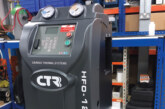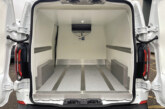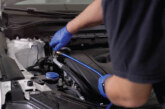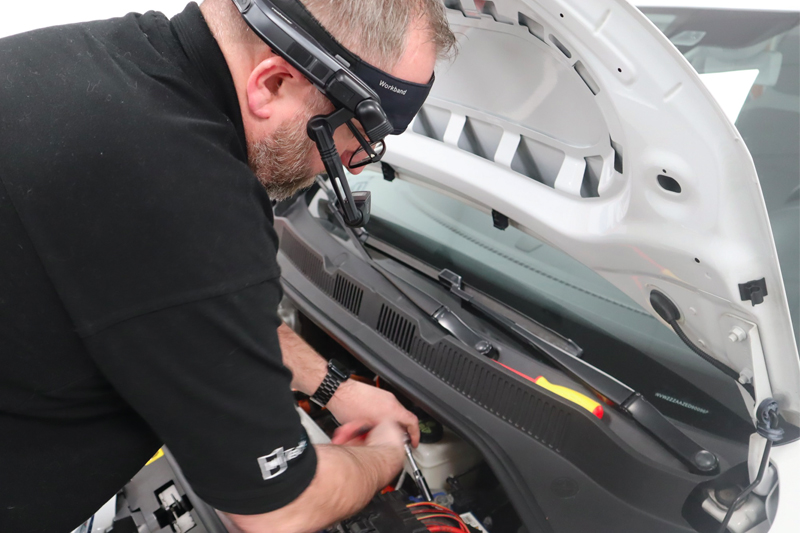
Darren Dowling, client services director for Autotech Connect, puts the case for harnessing technology to combat skills shortages in the LCV and HGV sectors.
In the logistics and transportation industry, maintaining the efficiency of light commercial vehicles (LCV) and heavy goods vehicles (HGV) is paramount. However, an acute shortage of skilled technicians capable of maintaining and repairing these vehicles is causing significant challenges.
While a widespread issue facing the entire aftermarket, several factors have notably contributed to the technician shortage within the LCV and HGV sectors. The rapid expansion of the logistics industry – fuelled by a surge in demand for e-commerce and next-day deliveries, has led to an increased need for these vehicles. Couple this with the increasing technological sophistication of vehicles entering the space requiring complex repair and maintenance and the fact that the supply of skilled vehicle technicians has not kept pace, and the situation is exacerbated.
This gap in skills is having a detrimental impact on the average fleet vehicle off-road (VOR) time, and the implications of this are far-reaching. Not only do extended VOR times affect the operational bottom line but also client and end-user satisfaction. In a sector where time is literally money, having a vehicle out of commission translates to lost revenue and compromised service delivery.
With the industry grappling with these challenges, innovative solutions which leverage technology should be adopted to make workshops more efficient, plug gaps in available skills and ensure a first-time fix. With software-defined vehicles increasingly rolling into the workshop, the intersection of integrating technology with vehicle servicing and repair has never been more critical.
Autotech Connect, a division of automotive employment and training solutions provider Autotech Group, was launched last year. Initially created to help the aftermarket mitigate the challenges of the growing risk of cybercrime while implementing technology into the workshop to promote greater efficiency, we are seeing a greater demand from the industry for technology to be used as an effective tool to approach problem-solving and staff productivity.
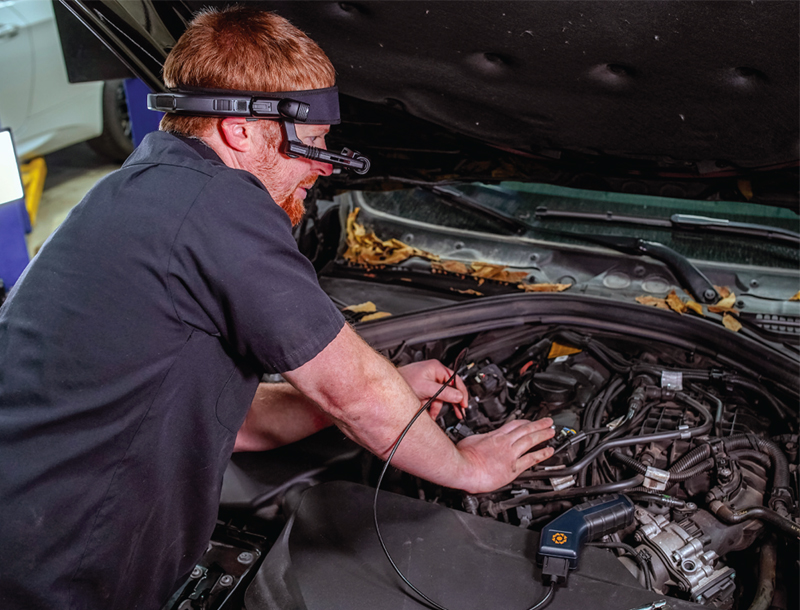
Assisted reality
One solution currently being trialled across the LCV and HGV industry is assisted reality (AR) headsets. Already creating tangible results, one commercial vehicle manufacturer has revealed an increase in repair efficiency of 93%.
The AR headset allows a master technician working remotely to connect with multiple workshops and technicians. The headsets, created by RealWear, one of the world’s leading providers of assisted reality wearable solutions, are designed to be unobtrusive, allowing technicians to use their hands freely while engaging directly with the master tech through the headset’s visual video screen.
This technology enables a master tech to inspect a vehicle remotely, allowing for immediate parts ordering and reducing the wait time for a physical check by a master tech. This streamlined process not only enhances efficiency but also drives effective planning and reduces downtime. For the master technicians, the ability to cover more sites remotely translates to a significant reduction in carbon emissions and a more sustainable operation overall.
While bridging the skills gap, the implementation of the AR headsets facilitates improved diagnosis times and streamlines workflows, ensuring vehicle repair and maintenance are conducted swiftly and accurately, dramatically reducing VOR times.
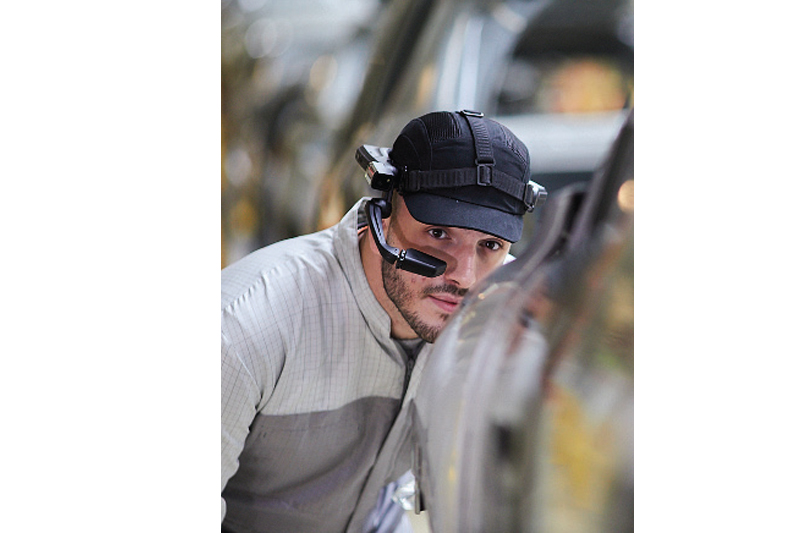
Remote working
Trialling AR headsets, one LCV network enabled over 65 technicians to remotely connect directly with experts at its technical centre, leading to a staggering 93% increase in repair efficiency and a notable improvement in customer satisfaction attributed to the reduced maintenance time.
Furthermore, an added benefit of master technicians minimising their time on the road is the reduction in emissions. For the LCV network, this equated to 2.5 tonnes of CO2 expenditure being saved.
The integration of AR technology in the LCV and HGV sectors represents a significant leap forward in addressing the pressing challenges of skills shortages and extended VOR times. Vehicles are becoming increasingly technical putting more pressure on the workshops who, already facing a depleting pool of talent, do not always have the necessary skilled resources to repair and maintain them. By utilising technical tools, workshops can enhance repair and efficiency while improving customer satisfaction and contributing to environmental sustainability.
The use of AR headsets can also contribute towards employee retention. The industry needs to preserve the skills of master technicians and, having the ability to provide remote support may keep those, considering retirement, in the industry. In addition, vehicle technicians within the workshop are also empowered and upskilled in the process, enabling them to operate with unprecedented efficiency and fix first time.
Another sector impacted by the skills shortage, particularly as its fleet is increasingly electrified, is the emergency services. Many have cited that their service is seeing up to a third of fleets being off the road at any one time due to the backlog in repairs, and not having the resources with the right skill set to fix issues. Leveraging AR headsets within this sector has already begun to yield an increase in efficiency and repair times, showcasing the transformative potential of this technology.



